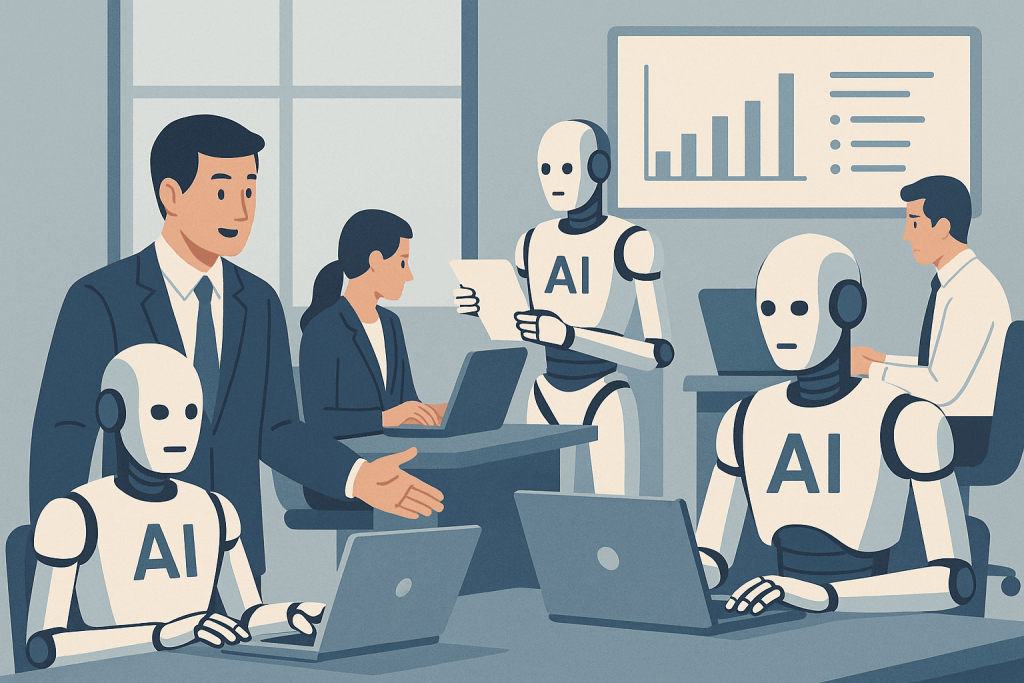
Recently, Microsoft introduced a new concept of AI agents that can act not just as assistants, but as independent participants in the workflow. Within these tools, it is now possible to create artificial “digital units” that understand the context of a task, initiate actions, communicate with other systems, and even coordinate the work of individual employees. This is not just another software update. It signals that artificial intelligence is transitioning to a new stage of development, where it stops being a passive tool and becomes an active agent in the business environment. For the automation market, this may mean a fundamental shift in the principles of work organization.
How the Role of Artificial Intelligence is Changing
Previously, AI worked in a reactive format: a user formulated a request, the system processed it, and returned a response. This was powerful but limited: artificial intelligence could not act independently and depended on the clarity of the command. However, in modern corporate processes, what is often required is not just an answer, but an action. If contract terms change, a timely response is needed. If an anomaly appears in data, it is important not only to record it but to initiate the process of resolving it. This is why AI agents are emerging — systems that constantly monitor processes, operate in real time, and do not wait for instructions.
This means that artificial intelligence receives more autonomy. It can track task statuses, analyze correspondence, perform preliminary document preparation, generate reports, or carry out communication actions without human involvement, based only on agreed rules. The human becomes a controller and strategist rather than an operator.
The Effect of Model and Infrastructure Cost Reduction
Just a few years ago, the development of AI in the corporate sphere was limited by the cost of technology. Large language models required powerful servers and expensive GPUs. Only companies with significant IT budgets could integrate them into everyday workflows. Today, the situation is changing: models are becoming more efficient, and their computational requirements are decreasing. Local versions of models are appearing on the market, which can run on private servers, without transferring data to external providers.
This is critical not only in terms of cost. For many companies, data confidentiality is a matter of reputation, responsibility, and even legal constraints. If AI agents can work locally, organizations maintain control over what data is transmitted and where. It is precisely the cost reduction and accessibility of AI that enables its mass adoption.
The Impact of AI Agents on Work Organization
AI agents do not replace people, but they change how people work. Routine actions are no longer part of the workday. Employees no longer spend hours sorting information, preparing template emails, generating reports, or reminding colleagues about tasks. These processes are automated and handled by artificial intelligence. The freed time can be redirected to organizational, creative, and strategic tasks that require human thinking and experience.
This also influences corporate culture. Companies that implement AI agents become more flexible and adaptive. They respond more quickly to market changes, work effectively with large information flows, and scale more easily. Meanwhile, employees experience less overload, as their efforts are focused on meaningful tasks rather than mechanical operations.
The Infrastructure Aspect of Implementation
Implementing AI agents requires a technical foundation. Companies need an environment where models can operate reliably, quickly, and without risk of data leakage. Cloud solutions are not always the best option: high pricing and dependency on external servers can become critical limitations. Therefore, more businesses are considering using their own infrastructure with VPS or dedicated servers.
This is exactly what RX-NAME server solutions are suitable for. They allow deploying an environment for AI agents, integrating business processes, testing models, and scaling them as needs grow. This provides companies with control, stability, and the ability to develop automation at their own pace.
AI agents are not the future; they are the logical next step in business evolution. And the companies that begin adopting them today will gain a strategic advantage tomorrow.

Leave a Reply